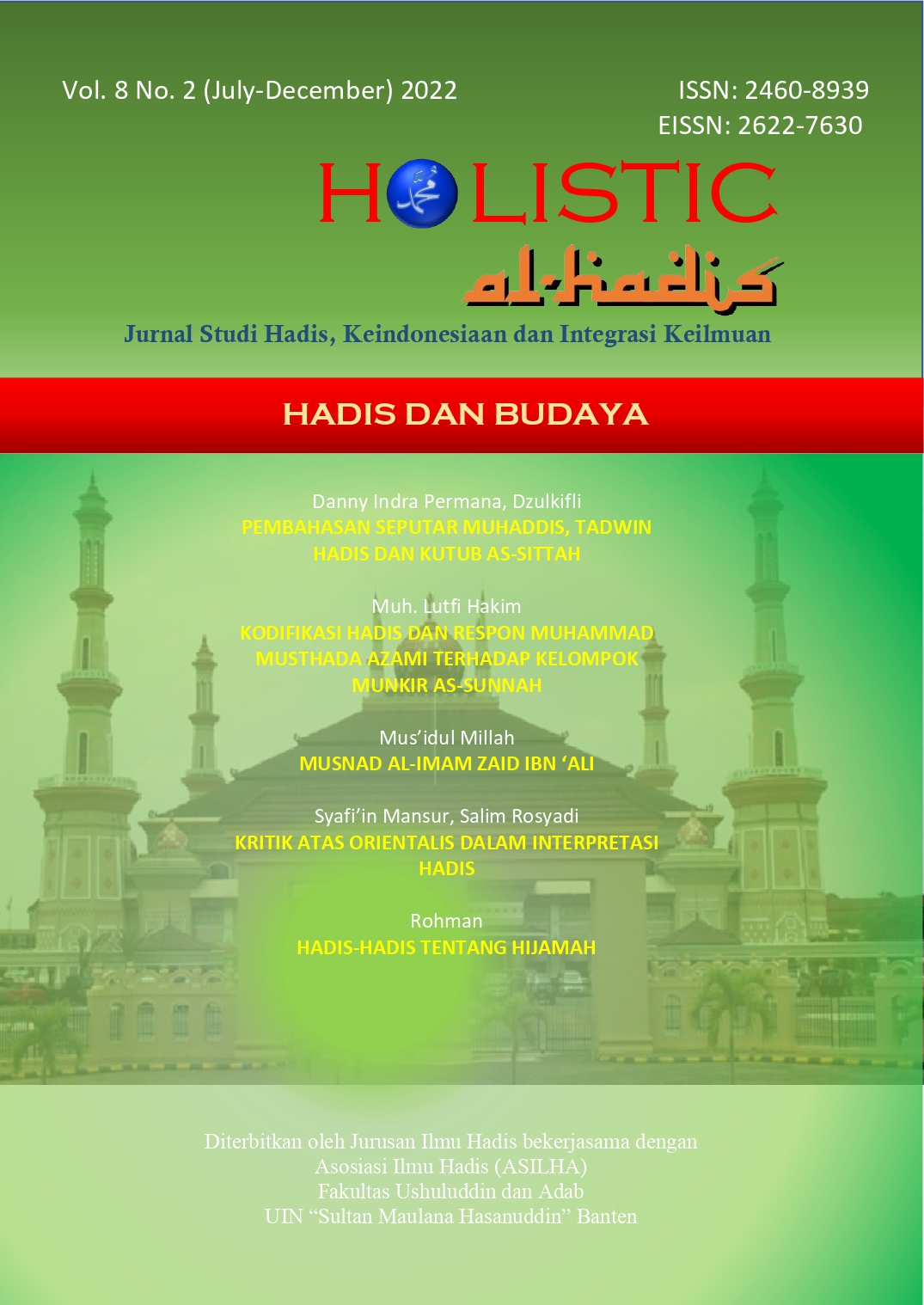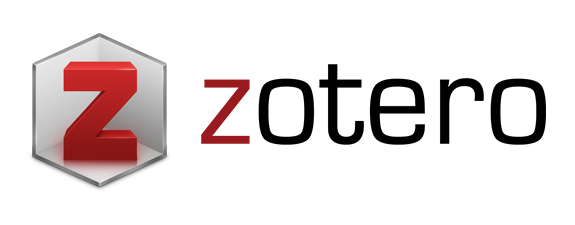KTIRIK ATAS ORIENTALIS DALAM INTERPRETASI HADIS
DOI:
https://doi.org/10.32678/holistic.v8i2.9608Keywords:
Hadith, Interpretation, OrientalistAbstract
The purpose of this research is to illustrate that Orientalist studies and interpretations of the Prophet's Hadith or Sunnah are positive and negative. Positive Orientalist studies and interpretations are not polemical, but sympathetic and academically good and enlightening. While the study and interpretation of the negative Orientalists brought polemics both among the Orientalists themselves and among Muslim intellectuals. The Orientalist who brought this polemic, is due to untruthfulness, dishonesty and objectivity so that the Orientalist gets sharp criticism from Muslim intellectuals, both inclusive, exclusive and modernist. All of that, aimed at Orientalists studying and interpreting the Hadith of the Prophet and the Sunnah with a scientific and systematic purpose, not for their personal, group and religious interests.
Downloads
References
Abdurrahman Badawi, Mawsu’ah al-Mustasyriqin, terj. Amroeni Drajat, Ensiklopedi Tokoh Orientalis, [Yogyakarta: LKIS, 2003], cet. ke-1
Ahmad Muhammad Jamal, Muftarayat Ala Islam, terj. As’ad Yasin, Membuka Tabir Upaya Orientalis Dalam Memalsukan Islam, [Bandung: Diponogoro, 1991], cet. ke-1
Fazlur Rahman, Islam, [Bandung: Pustaka, 1984], cet. ke-1
Idri, Hadis dan Orientalis Perspektif Ulama Hadis dan Para Orientalis Tentang Hadis Nabi, [Depok: Kencana, 2017], cet. ke-1
Ignaz Goldziher, Indroduction to Islamic Theology and Law, terj. Hersri Setiawan, Pengantar Teologi dan Hukum Islam, [Jakarta: INIS, 1991]
M. Syuhudi Ismail, Hadits Nabi Menurut Pembela Pengingkaran dan Pemalsunya, [Jakarta: Gema Insani Press, 1995], cet. ke-1
Mahmoud Hamdi Zaqzouq, Haqa’iq Islamiyyah fi Muwajahat Hamalat at-Tasykik, terj. Irfan Mas’ud, Islam Dihujat Islam Menjawab Tanggapan Atas Tuduhan dan Kesalahpahaman, [Tangerang: Lentera Hati, 2008], cet. ke-1
Maryam Jamilah, Islam and Orientalism, terj. Machnun Husein, Islam dan Orientalisme Sebuah Kajian Analitik, [Jakarta: RajaGrafindo Persada, 1994], cet. ke-2
Muhammad Ajaj Al-Khatib, Ushul Al-Hadits, terj. M. Qodirun Nur dan Ahmad Musyafiq, Ushul Al-Hadits Pokok-Pokok Ilmu Hadits, [Jakarta: Gaya Media Prtama, 2007], cet. ke-4
Muhammad Mustafa Azami, Studies In Early Hadith Literature, terj. Ali Mustafa Yaqub, Hadis Nnabawi dan Sejarah Kodifikasinya, [Jakarta: Pustaka Firdaus, 1994], cet. ke-1
Raghib As-Siraji, Wa Syahida Syahidun min Ahliha, terj. Misbahul Munir, Pengakuan Tokoh Non Muslim Dunia Tentang Islam, [Bandung: Sygma Publishing, 2010], cet. ke-1
Syafiin Mansur, Orientalisme, [Serang: Yayasan Ulumul Qur’an, 1997], cet. ke-1
Syaikh Manna Al-Qaththan, Mabbahis fi Ulumul Hadis, terj. Mifdhol Abdurrahman, Pengantar Studi Ilmu Hadits, [Jakarta: Pustaka Al-Kautsar, 2019], cet. ke-13
Syamsuddin Arif, Orientalis dan Diabolisme Pemikiran, [Jakarta: Gema Insani Press, 2008], cet. ke-1
Wahyuddin Darmalaksana, Hadis Dimata Orientalis Telaah Atas Pandangan Ignaz Goldziher dan Jiseph Schacht, [Bandung: Benang Merah Press, 2004], cet. ke-1
Downloads
Published
Issue
Section
License
Copyright (c) 2022 Syafi'in Mansur

This work is licensed under a Creative Commons Attribution 4.0 International License.
Authors who publish with this journal agree to the following terms:
-
Authors retain copyright and grant the journal right of first publication with the work simultaneously licensed under a Creative Commons Attribution License that allows others to share the work with an acknowledgement of the work's authorship and initial publication in this journal.
-
Authors are able to enter into separate, additional contractual arrangements for the non-exclusive distribution of the journal's published version of the work (e.g., post it to an institutional repository or publish it in a book), with an acknowledgement of its initial publication in this journal.
-
Authors are permitted and encouraged to post their work online (e.g., in institutional repositories or on their website) prior to and during the submission process, as it can lead to productive exchanges, as well as earlier and greater citation of published work (See The Effect of Open Access).


















